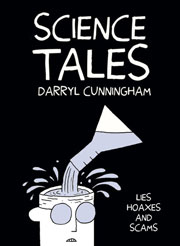Had a fabulous time in London, attending the Graphic Medicine Conference at the university of London. I'm still digesting the experience which was something of a whirl. I've not attended one of these academic events before, so for me it was something quite different. Nothing like the comics events I usually attend.
I have this stereotyped image in my mind of professors wearing tweed jackets while smoking pipes. The people there were nothing like this. I talked for a while with this young woman, who turned out to be a professor of European Intellectual history at an American university. I thought she was just some girl. Which doesn't say much for me.
The event was well attended. There were about seventy-five delegates there, from all over the world. Quite a lot of people from Canada. The main thrust of the conference was to explore the medical narrative in graphic novels and comics. Sounds a bit dry and surely there's only a tiny area to explore? Not so. In recent years there's been a small explosion of medical-themed graphic novels. A few of the creators of these books were at the event. Brian Fies, talking about his book Mom's Cancer: A Family's Experience In Comics. Also attending was Philippa Perry, author of Couch Fiction, a graphic novel about psychotherapy. And, of course, I was there with Psychiatric Tales.
There was also a focus on using illustrations and comics in the education of those working in medicine, as well as its usefulness in therapy for patients. I was particularly interested in one talk, by MK Czerwiec, in which she discussed using illustrations to break down the barriers between professional caregivers and their patients. It's still sometimes hard for doctors, nurses, etc, to properly see the point of view of their patients. This is partly due to the professional detachment such working people are obliged to have and the emotional defence necessary in these professions. Put on the white coat and you're immediately detached from the rest of humanity due to the higher status you've just achieved and the powerful stresses of the work. In MK Czerwiec's talk she discussed asking care-givers to draw both the experience of a particular illness from the point of view of the professional and the patient. The division in the content of these illustrations was very clear. The emotional and empathetic content was almost entirely lacking when the care-givers took the professional stance, but it remained a powerful element in the drawings when the group took the patient's role.
It was mostly very interesting, although I didn't get to see every presentation, due to the parallel programming that had to go on in order to fit everything into one day. From my point of view it was a great success. I sold every copy of Psychiatric Tales I had (and could have sold many more). I did well on the panel discussion with Brian Fies and Philippa Perry (chaired by Paul Gravett). The whole event was quite a blast and there was free wine at the end of the day. What could be better than that?
Thanks to Paul Gravett, Peter Stanbury, and Ian Williams.
So Long, and thanks for all the fish…
-
Richard has already taken his final bow on the blog (see here), and now
it’s my turn. Truth be told I have been putting this off all week, and here
I am ...
7 years ago











4 comments:
Hi Darryl, I was at the conference and it was a great day. The presentations were interesting and stimulating. About as far from the stereotypical dry academic input that you'd imagine. I particularly enjoyed your talk around Psychiatric Tales (enough to buy a copy on the spot!)All in all a valuable day and a great opportunity to explore he issues and potential of graphic narrative to deal with all sorts of sensitive and emotive issues.
I've since read Psychiatric Tales and I think it's a fantastic piece of work. Your perspective as a care provider is extremely valuable and the perspective you provide can only help in breaking away from the stigma that is often associated to mental ill health.
Good Luck with the new edition and your next project
Great sketches, pitty about the disinformation about homeopathy - you've wasted your talent.
On a different note, I've often wondered what kind of research Professor Ernest conducted at University of Exeter, thanks to your cartoon the mystery has been solved: back in 2002 he sent a standard email to 168 homeopaths pretending to be a concerned mother! Some would probably call it spam. If he was Nigerian he'd probably be accused of fraud, but never mind that...let's just call great research and extend his grant!
Ahah, I've had a problem using my smart phone to make a comment and ended up posting it on the wrong blog post. It was supposed to go with the homeopathy cartoon, but I'm sure you get the idea. :)
Well now I kind of feel obliged to leave a comment for this post. It sounds like you had a good time. As far as medical novels are concerned you can't beat Robin Cook and his medical thrillers!
Post a Comment